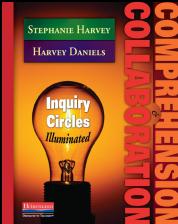A lot of questions have been circulating about the Common Core State Standards and some have come up during conferences. The Common Core Standards are being challenged around the state. A few state legislators have reopened the Common Core issue and are conducting hearings around the state. As professionals, we need to educate people about the Common Core State Standards and dispel myths about the standards. We are the professionals who work with the standards on a daily basis to guide our instruction and educate our kids. I want you to be prepared to speak to parents, friends and family who ask about the CCSS standards that guide our work everyday.
Here are some great resources from the WI DPI regarding the CCSS. Your work with the standards and the impact for students are powerful in educating people about the standards.
The next hearing close to Hudson is scheduled for:
Wednesday, October 23 (2:00 p.m.-8:00 p.m.) Eau Claire –Chippewa Valley Technical College
I will be testifying on behalf of WASCD educating the state about the CCSS on Wednesday. We will have representatives from Hudson testifying as well and I will share quotes from them. I believe Dan Koch and Sandi Kovatch will also be testifying. Here is my prepared statement:
My name is Susie Prather and I am the
principal at Hudson Prairie Elementary school in Hudson, Wisconsin. I am here as a representative of the
Wisconsin Association of Supervision and Curriculum
Development.
WASCD has been a state leader in curriculum and
instruction for 65 years. The organization is non-partisan with a
focus on improving student achievement through quality curriculum and
instruction. Members of the organization include superintendents, curriculum
directors, principals, teachers, and other educational professionals.
As experts in curriculum and instruction,
we are committed to supporting the use of the Common Core standards as the
foundation for the instruction and assessments.
The state's previous Model Academic
Standards were a patchwork of expectations only providing what students should
know and be able to do at grades 4, 8, and 12. The Common Core
Standards provide a clearly articulated set of expectations across each grade
level.
By having a consistent set of academic
expectations through Common Core Standards, districts are able to collaborate
and develop greater opportunities for equity and access to key skills and
concepts that are aligned with college and career expectations.
The Common Core Standards serve as a guide
for local districts. The standards are not curriculum. Districts still have
local control related to specific outcomes, curriculum, resources and
assessments that are used. In Hudson, we
have used the standards to guide our planning of instruction, use of resources,
and in developing rigorous assessments for the past three years.
Long term, the question that needs to be asked
is "Do the Common Core Standards in reading and math better position
our Wisconsin students to be competitive nationwide and worldwide, in college
and viable careers?"
As an educator, I know the Common Core
Standards will do just that and will prepare students to be successful
contributors to our world.
Institutes of higher education support the
Common Core Standards because it raises the bar for our students. Businesses
across the state support the Common Core because students better understand and
can use critical skills in math, literacy, and problem solving to be more
effective employees.
WASCD, with its 700 members, goes on record
as supporting the Common Core Standards as a significant component of systemic
improvement in math and literacy across the state.
 It's hard to believe it's almost 2014. Happy New Year!
It's hard to believe it's almost 2014. Happy New Year!























